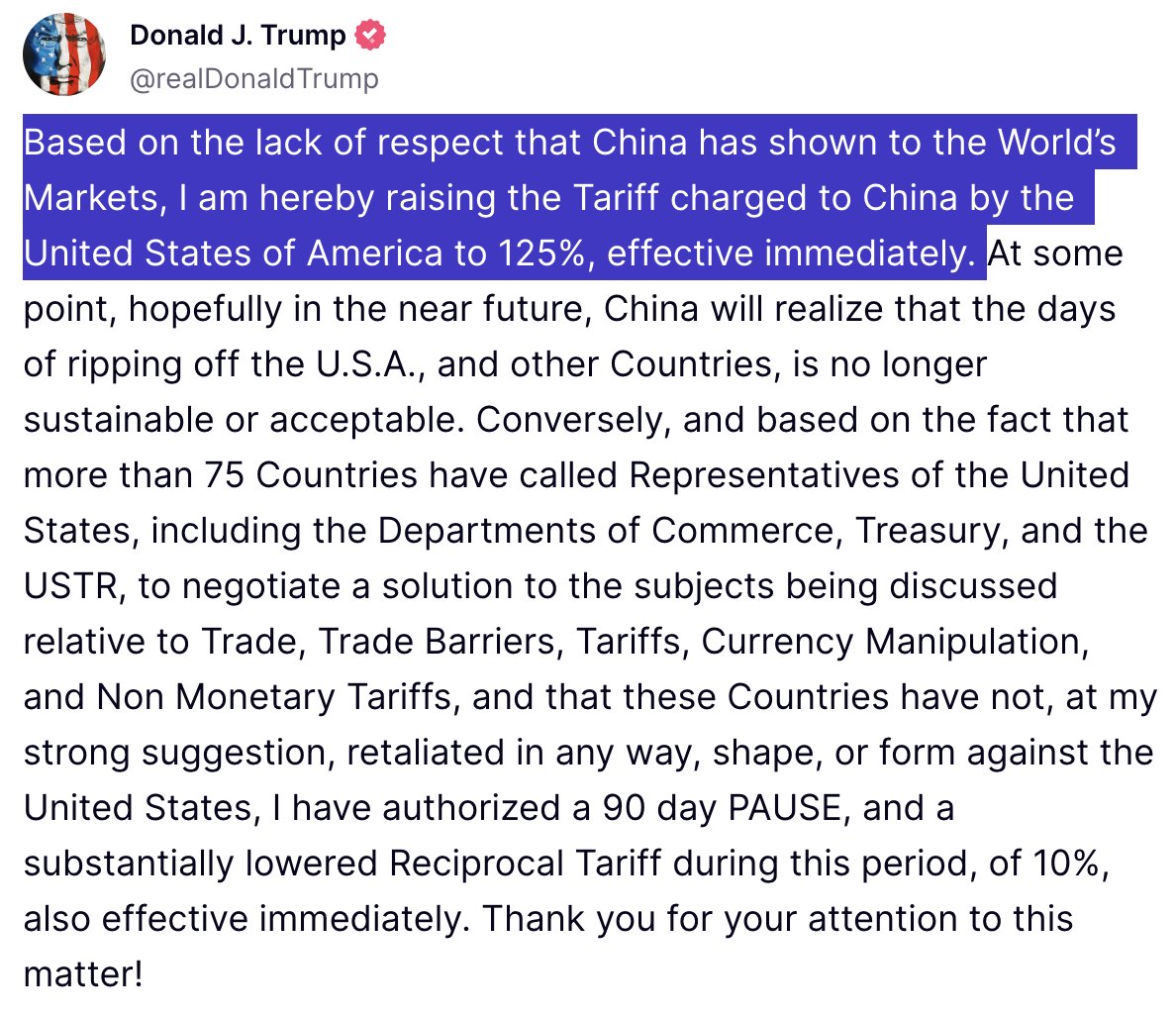Business
Sec. of State Marco Rubio announces major overhaul at USAID, cancels 83% of programs
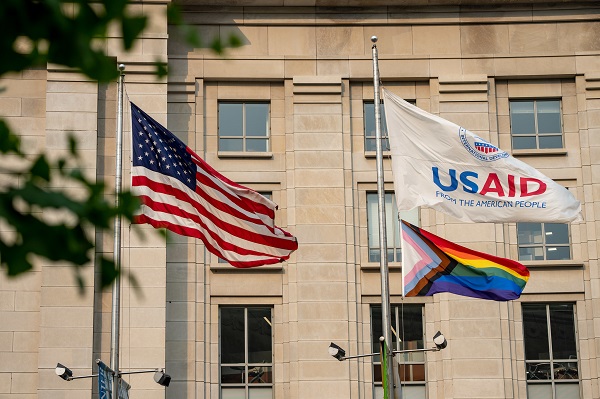
 MxM News
MxM News
Quick Hit:
After a six-week review, Sen. Marco Rubio announced the cancellation of 83% of USAID programs, citing wasteful spending and harm to U.S. national interests. The move eliminates 5,200 contracts worth tens of billions of dollars, with remaining programs shifting under the State Department for better oversight. Rubio thanked staff for their efforts in implementing what he called a “historic reform.”
Key Details:
- Sen. Marco Rubio revealed that 5,200 USAID contracts have been canceled after a six-week review.
- The cuts affect tens of billions in foreign aid, which Rubio argued was not serving U.S. national interests.
- The remaining 1,000 programs will be administered under the State Department with improved oversight.
Diving Deeper:
In a sweeping reform of U.S. foreign aid spending, Sen. Marco Rubio (R-FL) announced on Monday that the federal government has canceled 83% of programs administered by the United States Agency for International Development (USAID). According to Rubio, the decision followed a six-week review that exposed extensive waste, inefficiency, and, in some cases, harm to core U.S. national interests.
“The 5,200 contracts that are now canceled spent tens of billions of dollars in ways that did not serve, and in some cases even harmed, the core national interests of the United States,” Rubio stated. His move reflects growing scrutiny among conservatives regarding how taxpayer money is used in foreign aid, particularly under USAID, which has long been criticized for funding controversial projects abroad.
Rubio clarified that approximately 1,000 remaining programs—just 18% of USAID’s previous operations—will now be administered under the State Department. This transition, he noted, will ensure these programs are managed more effectively with greater oversight from Congress. His announcement signals a significant shift in how the U.S. approaches foreign aid, moving toward a more targeted and strategic approach rather than broad, unchecked spending.
The decision has drawn praise from fiscal conservatives who have long argued that USAID’s operations lacked accountability and often funded programs that failed to advance American interests. Critics of the agency have pointed to cases where U.S. foreign aid dollars went to projects promoting ideological agendas or funding corruption in foreign governments.
Rubio thanked the Department of Global Engagement (DOGE) and USAID staff who worked tirelessly to carry out what he described as a long-overdue reform. The announcement is likely to spark debate in Washington, as Democrats and globalist policymakers have traditionally defended USAID’s expansive role in international development.
The restructuring of USAID under the oversight of the State Department represents a dramatic reimagining of America’s foreign assistance strategy—one that prioritizes accountability and ensures taxpayer dollars are spent in direct service of national security and diplomatic goals.
Business
Trump raises China tariffs to 125%, announces 90-day pause for countries who’ve reached out to negotiate

 MxM News
MxM News
Quick Hit:
On Wednesday, President Donald Trump announced an immediate increase in tariffs on China to 125%, citing “a lack of respect” toward global markets. At the same time, he approved a 90-day pause and tariff reduction for over 75 countries that have engaged with the U.S. on trade reforms.
Key Details:
-
Trump said the dramatic tariff hike on China is meant to send a clear message: “the days of ripping off the U.S.A., and other Countries, is no longer sustainable or acceptable.”
-
The president added that over 75 countries have reached out to the U.S. Departments of Commerce, Treasury, and the U.S. Trade Representative (USTR) to negotiate on issues including trade barriers, tariffs, and currency manipulation.
-
As a goodwill measure, Trump authorized “a 90 day PAUSE, and a substantially lowered Reciprocal Tariff during this period, of 10%, also effective immediately,” noting that these countries had not retaliated against the U.S. despite strong prior warnings.
Diving Deeper:
President Donald Trump on Wednesday took a major step in reshaping the global trade landscape, announcing via Truth Social that he is raising tariffs on China to 125% effective immediately. Trump attributed the decision to “the lack of respect that China has shown to the World’s Markets,” and said it is time for Beijing to face consequences for its trade practices.
“At some point, hopefully in the near future, China will realize that the days of ripping off the U.S.A., and other Countries, is no longer sustainable or acceptable,” Trump stated.
The president emphasized that this was not a blanket policy toward all trading partners. In contrast to China, Trump said more than 75 countries have reached out to American trade officials to address ongoing issues related to tariffs and trade barriers.
“More than 75 Countries have called Representatives of the United States, including the Departments of Commerce, Treasury, and the USTR, to negotiate a solution to the subjects being discussed relative to Trade, Trade Barriers, Tariffs, Currency Manipulation, and Non Monetary Tariffs,” he wrote.
Citing those discussions and the absence of retaliation against the U.S., Trump approved a temporary reduction in reciprocal tariffs for those countries. “I have authorized a 90 day PAUSE, and a substantially lowered Reciprocal Tariff during this period, of 10%, also effective immediately.”
The move reflects a two-pronged strategy—punishing China for what Trump sees as longstanding economic abuses while rewarding countries that have shown a willingness to work with the U.S. to level the playing field.
The 125% tariff marks one of the most aggressive steps in Trump’s America First trade doctrine, likely signaling to both allies and adversaries that a second Trump administration would continue its hardline economic policies.
Alberta
Alberta takes big step towards shorter wait times and higher quality health care

From the Fraser Institute
On Monday, the Smith government announced that beginning next year it will change the way it funds surgeries in Alberta. This is a big step towards unlocking the ability of Alberta’s health-care system to provide more, better and faster services for the same or possibly fewer dollars.
To understand the significance of this change, you must understand the consequences of the current (and outdated) approach.
Currently, the Alberta government pays a lump sum of money to hospitals each year. Consequently, hospitals perceive patients as a drain on their budgets. From the hospital’s perspective, there’s little financial incentive to serve more patients, operate more efficiently and provide superior quality services.
Consider what would happen if your local grocery store received a giant bag of money each year to feed people. The number of items would quickly decline to whatever was most convenient for the store to provide. (Have a favourite cereal? Too bad.) Store hours would become less convenient for customers, alongside a general decline in overall service. This type of grocery store, like an Alberta hospital, is actually financially better off (that is, it saves money) if you go elsewhere.
The Smith government plans to flip this entire system on its head, to the benefit of patients and taxpayers. Instead of handing out bags of money each year to providers, the new system—known as “activity-based funding”—will pay health-care providers for each patient they treat, based on the patient’s particular condition and important factors that may add complexity or cost to their care.
This turns patients from a drain on budgets into a source of additional revenue. The result, as has been demonstrated in other universal health-care systems worldwide, is more services delivered using existing health-care infrastructure, lower wait times, improved quality of care, improved access to medical technologies, and less waste.
In other words, Albertans will receive far better value from their health-care system, which is currently among the most expensive in the world. And relief can’t come soon enough—for example, last year in Alberta the median wait time for orthopedic surgeries including hip and knee replacements was 66.8 weeks.
The naysayers argue this approach will undermine the province’s universal system and hurt patients. But by allowing a spectrum of providers to compete for the delivery of quality care, Alberta will follow the lead of other more successful universal health-care systems in countries such as Australia, Germany, the Netherlands and Switzerland and create greater accountability for hospitals and other health-care providers. Taxpayers will get a much better picture of what they’re paying for and how much they pay.
Again, Alberta is not exploring an untested policy. Almost every other developed country with universal health care uses some form of “activity-based funding” for hospital and surgical care. And remember, we already spend more on health care than our counterparts in nearly all of these countries yet endure longer wait times and poorer access to services generally, in part because of how we pay for surgical care.
While the devil is always in the details, and while it’s still possible for the Alberta government to get this wrong, Monday’s announcement is a big step in the right direction. A funding model that puts patients first will get Albertans more of the high-quality health care they already pay for in a timelier fashion. And provide to other provinces an example of bold health-care reform.
-

 2025 Federal Election1 day ago
2025 Federal Election1 day agoHarper Endorses Poilievre at Historic Edmonton Rally: “This Crisis Was Made in Canada”
-

 2025 Federal Election1 day ago
2025 Federal Election1 day agoMark Carney’s radical left-wing, globalist record proves he is Justin Trudeau 2.0
-

 conflict1 day ago
conflict1 day agoZelensky Alleges Chinese Nationals Fighting for Russia, Calls for Global Response
-
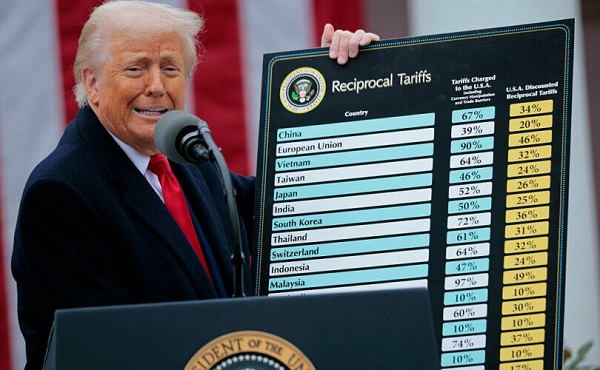
 Business1 day ago
Business1 day agoTrump’s tariff plan replaces free trade with balanced trade. Globalists hate that.
-

 2025 Federal Election1 day ago
2025 Federal Election1 day agoAn In-Depth Campaign Trail “Interview” With Pierre Poilievre
-

 Bruce Dowbiggin2 days ago
Bruce Dowbiggin2 days agoBettman Gives Rogers Keys To The Empire. Nothing Will Change
-
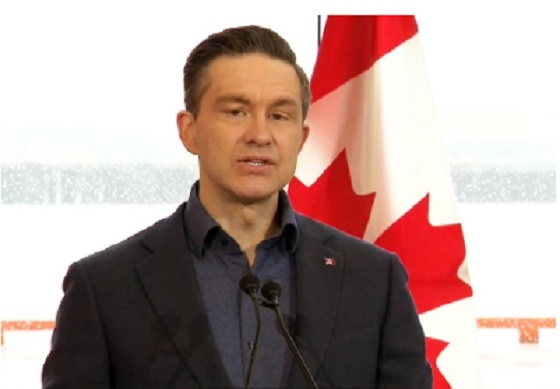
 2025 Federal Election2 days ago
2025 Federal Election2 days agoPoilievre Will Bring in ‘One and Done’ Resource Approvals, and Ten Specific Projects Including LNG Canada Phase II
-
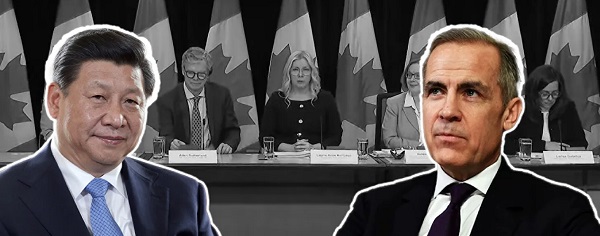
 2025 Federal Election2 days ago
2025 Federal Election2 days agoElection Security Briefing Confirms CCP-Linked Operation Boosted Carney
